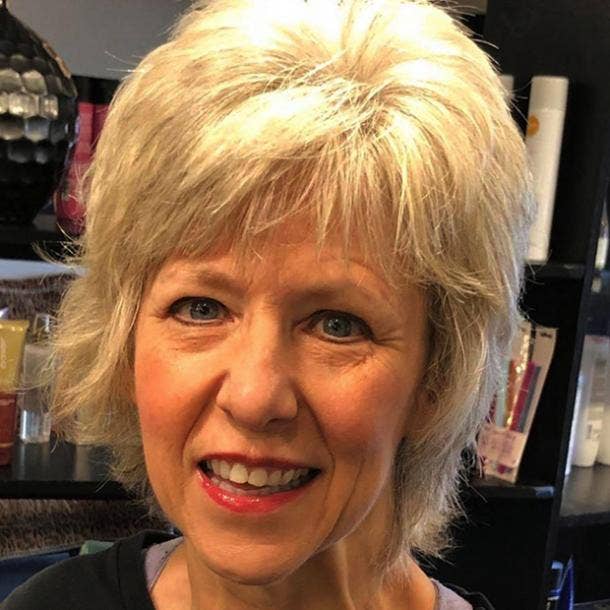
When she was 4 years old, Victoria Mavis had an accident that resulted in brain trauma and left her partially paralyzed. Facing a grim diagnosis and the reality of life with a disability in the 1960s, she fought for her life and relearned how to perform basic functions such as walking and talking.
Within a year of her accident, she would be the first child with a disability to enter a school system that wasn’t equipped physically or culturally for her needs.
She was a pioneer for equality of treatment in an era when society considered people with disabilities to be social misfits.
Victoria paved the way for others who “didn’t fit in” long before anyone proposed the Americans With Disabilities Act (ADA). This is her story:
In 1964, when I was 4 years old, I experienced a serious injury that resulted in brain trauma. The incident left me partially paralyzed and disabled.
Facing a grim diagnosis, I fought for my life and had to relearn basic functions, like walking and talking.
Within a year of the accident, I became the first child with a physical disability to enter a school system that wasn’t equipped structurally or culturally for people with disabilities.
Nevertheless, I grew professionally and thrived in a world where no one spoke about my disability — including myself.
As I compiled notes to write my book, Every Scar Tells a Story, I realized there was a central theme to what I learned while overcoming struggles associated with having a lifetime walking disability.

At first, I figured these lessons could only benefit people with disabilities. However, the more I spoke about the book, the more I realized that my insights about “disability life” can benefit everyone:
1. Everyone has a disability.
It was sometime during the early part of my career when I discovered that some disabilities aren’t as obvious as mine, nor do most people consider them to be disabilities.
Some days, I muse about how my disability gives me insight into what I need to work on. On the other hand, some people without disabilities don’t realize what they have to overcome, like extreme anger, the inability to forgive, or the reluctance to share their thoughts or feelings.
Although these imperfections may not have a disability diagnosis, they can be just as disabling in building lasting relationships with others or achieving dreams, just like my medical condition makes physical tasks difficult.
2. We all have valuable skills.
If you saw me walking, you’d quickly understand that I can’t run, carry boxes, or even walk to the mailbox without assistance.
Although my disability prevents me from easily performing many life skills, it doesn’t stop me from being capable.
Recently, I volunteered to work at a food bank and was put on “box packing detail” along with a few others. As I looked around, I saw that the majority of people were carrying totes of food or loading vehicles with food boxes.
As I prepared to leave, the director approached and thanked me for packing the boxes quickly and still ensuring that I followed the exact directions. He said that these are two essential skills that he rarely observes in one person.
Then, he invited me to apply for a job opening. That day showed me that I may not be able to do many physical tasks, but I have skills that my able-bodied counterparts may not possess.
3. Always wear clean underwear.
These were my mother’s most famous words, and they stuck with me over the years. This mindset of having a routine to follow prepared me for anything life might toss my way — starting with a toe surgery that didn’t turn out the way that the doctor planned.
Despite my doctor telling me pre-surgery that I would wake from anesthesia with bandaged toes, I woke up post-surgery to two casts that reached my knees!
Instantly consumed with anger and hurt, I counted the hours until I could yell at my surgeon.
In the end, he explained why he needed to take a different route, but it was still five weeks before I could put shoes on and another three before I could walk without crutches.
From this painful experience, I learned that wearing clean underwear meant that I had to always ask enough questions to make sure I understand the best and worst possible outcomes for decisions in my life.
My disability has taught me lessons that others may take years to learn. I paved the way in school and in life, which was extremely difficult at some points, but I’m thankful that I learned so much from life with a disability.
Originally written by Victoria K. Mavis on YourTango.
Featured Photo by Marcus Aurelius on Pexels.


















